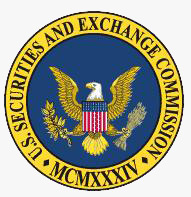No Playing Chicken With the SEC
Pondering the current state of hedge funds and private equity as a presenter at an alternatives industry event in Boston on Thursday of last week, I was struck by the vitality of an industry that, a mere 24 months ago, was depicted in some quarters as being lost at sea. Admittedly, the white-on-white starship elegance of Bingham McCutchen's Boston offices – not to mention crabmeat sandwiches, sour pickles, cold sodas and chips – did their part to banish most disagreeable thoughts. 
Ivy Plus Alternative Investment Network events, run by the indefatigable Marty Secada, attract a blend of new and seasoned managers as well as leading third-party marketers, prime brokers and cap intro veterans. It’s about as no-nonsense as crowds come. Still, you'd think the latest installment of insider trading dragnets at -- gasp! hedge funds! -- splashed across the front page of that day’s The Wall Street Journal would have injected at least a whiff of distraction into the ionized air. Not to mention pending draconian budget cuts in Washington and violent protests roiling the capitals of the Middle East. Alas, this is not an easily rattled crowd. Judging from this gathering, people in the alternative asset business are too busy living up to Adam Smith’s vision of Western liberal free-market ideas to let a little socio-economic-geo-political catharsis throw them off the scent of pure alpha.
Among the topics addressed by various speakers was SEC investment adviser registration, which is due to go into effect on July 21 of this year. The registration process – it’s not for the faint-hearted, but how many faint-hearted hedge fund managers could there be out there? – impacts money managers in ways that 2004 SEC rules did not.
I’ll explain: Under existing rules, you’re required to register with the SEC if you have $30 million or more under management and 15 or more clients (i.e., funds) over the last 12 months. Investment advisers for registered investment companies (e.g., mutual funds) and anyone who puts out a shingle in the U.S. as an “investment adviser” are likewise required to register. The Dodd-Frank Act (which is starting to shape up to be the Y2K pseudo-event of this era) erased the exemption from registering for “private advisers,” who now get to contribute their share to the corporate lawyer full employment act.
As of the July date, managers who advise hedge funds and private equity funds with assets of $150 million or more or anyone managing a mix of alternatives and traditional funds with $100 million or more will be required to register. The criteria and list of types of firms and individuals who must register goes on. But as bottom lines go, the Private Regulatory Rule under Dodd-Frank “reshapes the universe for investment advisors,” according to Steve Tirrell, a member of Bingham’s Investment Management Practice Group, and a specialist in structuring domestic and international private investment funds, including hedge funds and private equity funds.
According to Tirrell, chief compliance officers are circling the wagons and asking lots of questions. He’s hopeful that the SEC will pony up with more FAQs and overall guidance to address important questions that are emerging. Id est: enjoy those crabmeat sandwiches while you can. ![]()
